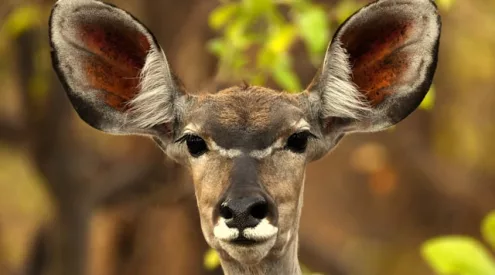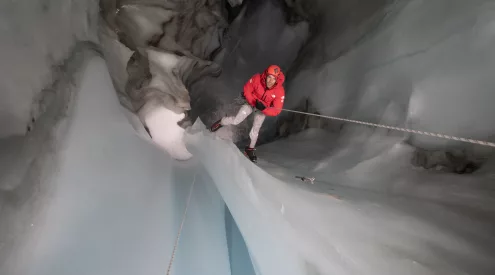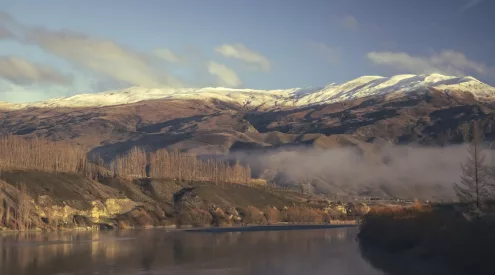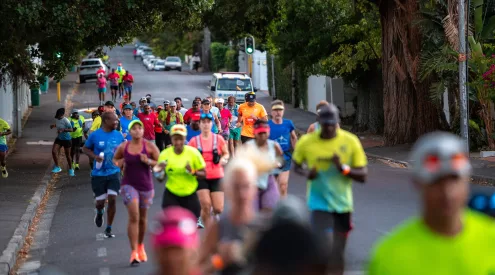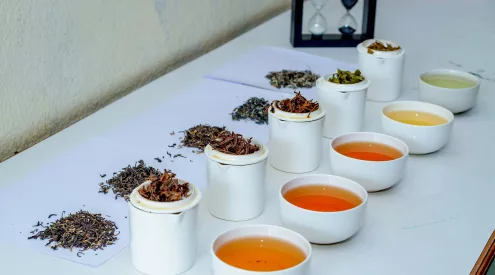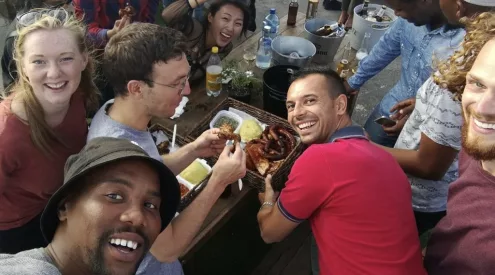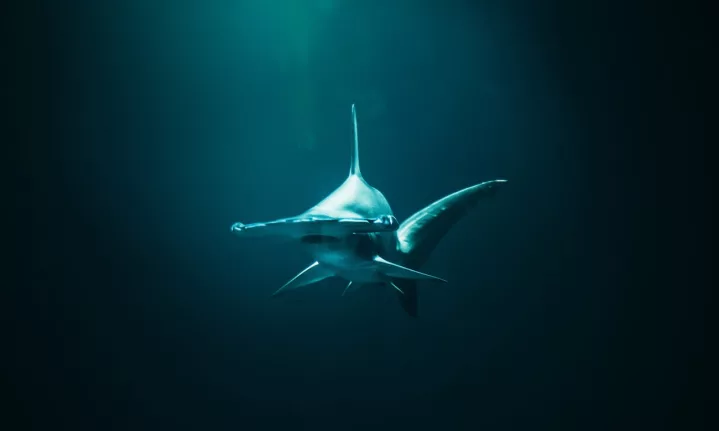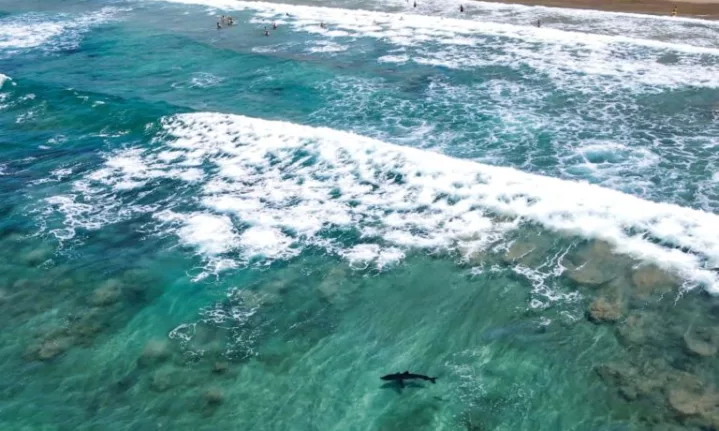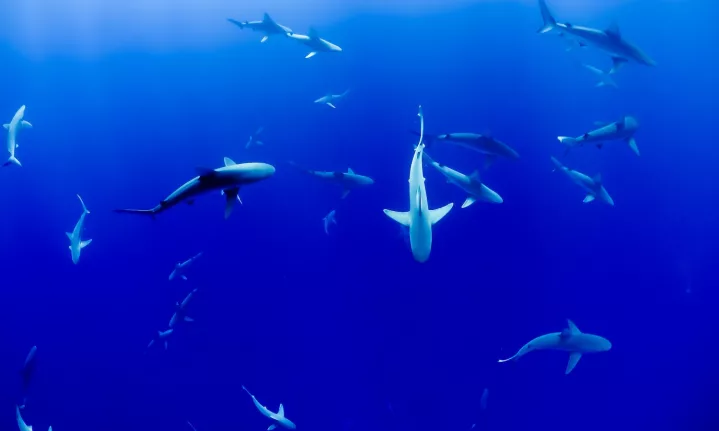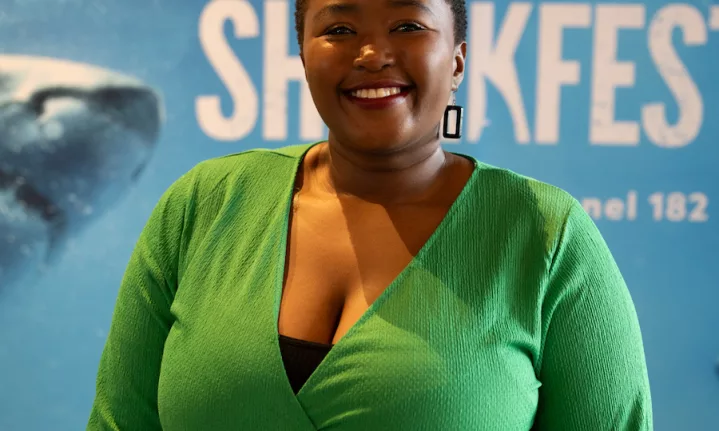‘My journey is led by a vision to see the proper representation of people of colour in conservation.
‘Six years ago I went on a mission to push past my boundaries and show others that it’s possible. Cluelessly, I entered the shark space, and what set me apart was my determination and willingness to learn. I couldn’t swim, was scared of the ocean, and had never been on a boat. But as I said, I had a vision.’
Marine and shark conservation advocate, creator of spaces for underprivileged youth, a voice for gender minorities of colour, and holder of other titles, Sophu Quma has many achievements under her hat.
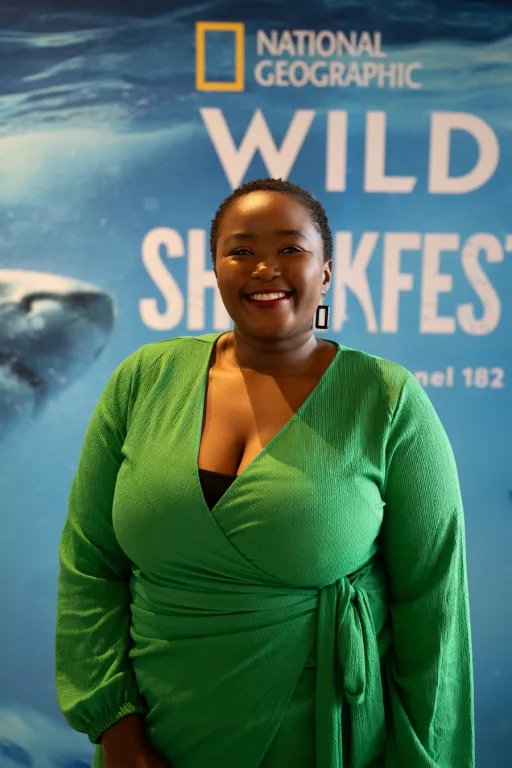
What are your titles, the work you do, and organisations you work with?
I am the co-owner and Director of Communications for the Shark Research Unit, communicating our scientific research and creating opportunities for underprivileged youth to access the marine space.
Further, I am a Nature Environment Wildlife Filmmaking Fellow, Africa’s regional coordinator for Minorities in Shark Science, a biodiversity representative and deputy secretary in African Protected Areas Congress Youth, and ex-spokesperson and member of the Youth for Marine Protected Areas.
The most impactful initiatives I have been a part of include the marine employability program where the goal was to build skill sets to create an entry foundation for those interested in pursuing the marine sector. This program aimed to explore and engage youth with the ocean through learning to swim and snorkel to foster a deep understanding from an early age.
The Keep Fin Alive Campaign is another initiative that I am proud to be a part of, as its mission is to spread awareness of threats to the ocean and marine life. Lastly, Justice for Jaws where I conduct workshops from time to time, bringing cutting-edge research and observations we encounter in the field.
How did you become involved in marine conservation?
I remember my first day at work when people thought I was part of the kitchen staff. That truly fueled me. I believe that being a person of colour in this industry rattles curiosity and makes a statement that anyone can do what I do.
Sharks are one of the most misunderstood species, which made choosing to work with them an easy choice.
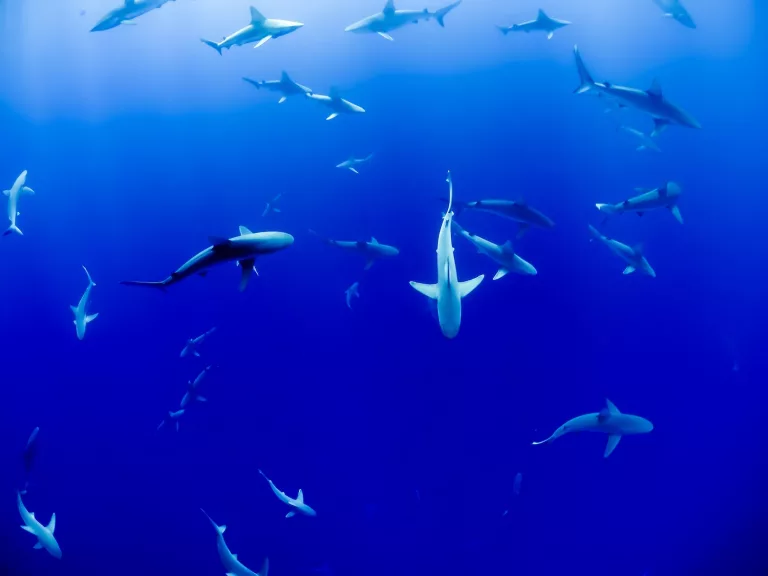
Picture: Unsplash
It hasn’t been an easy journey and I have had to bulldoze my way through doors. However, I am standing as an owner of the Shark Research Unit because of all the seeds I planted by giving 150% in all I do and because of the network I have built around me.
Are there any ongoing research or conservation initiatives related to sharks in South Africa that you are excited about?
Yes, I am particularly excited about Environmental DNA, a new technology we are aiming to use to gather data on shark populations in Mossel Bay. It is still in the initial stages where we are testing whether the data and techniques are viable.
Can you share insights into the importance of sharks
and the role they play in maintaining the balance of our
marine ecosystems?
Sharks play a crucial role in maintaining our oceans’ balance and are essential to healthy marine ecosystems. As apex predators, they regulate various marine species populations, prevent certain species from becoming overly abundant, and thus help maintain biodiversity.
Some misconceptions people have of sharks are that they are mindless killers or that they intentionally target humans as prey. This is an unnecessary fear that contributes to negative attitudes toward sharks.
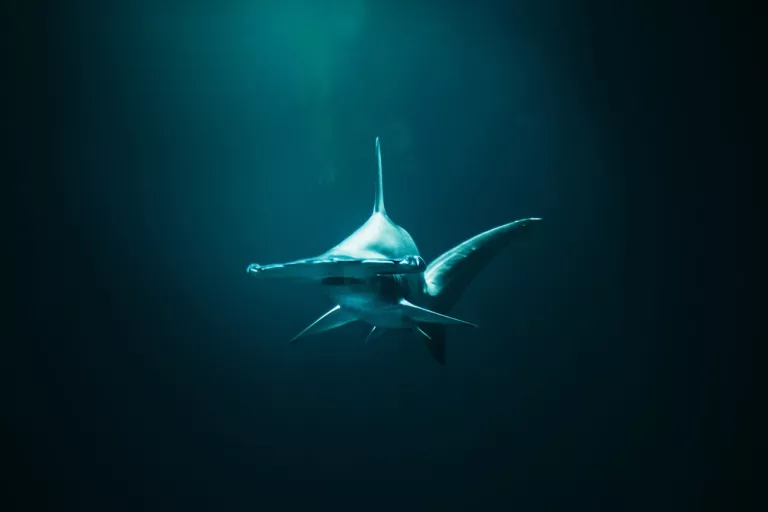
Picture: Unsplash
Are there any unique challenges specific to South Africa’s marine environment that you face, and how do you address them?
One key challenge is the presence of vulnerable and endangered species such as the great white shark and African penguin. These species face threats like habitat degradation, overfishing, illegal fishing, and poaching, On top of that, great white sharks have the killer whale problem (Port and Starboard) where they recently killed two great whites within 24 hours in Mossel Bay.
We have implemented an alert network from Port Elizabeth to Cape Town which helps signal when these two specific orcas pass through. We have also partnered with several organisations and students to help study and hopefully come up with a solution to protect the integrity of great white sharks in Mossel Bay. This is especially important as Mossel Bay is the last known hotspot for great whites left in South Africa.
African penguins face overfishing. Collaborating with campaigns like African Pengion NOOW, we can bring enough traffic to implement change to benefit and sustain both the penguins and the industry.
How do you address fears people may have about swimming in areas known to have shark populations?
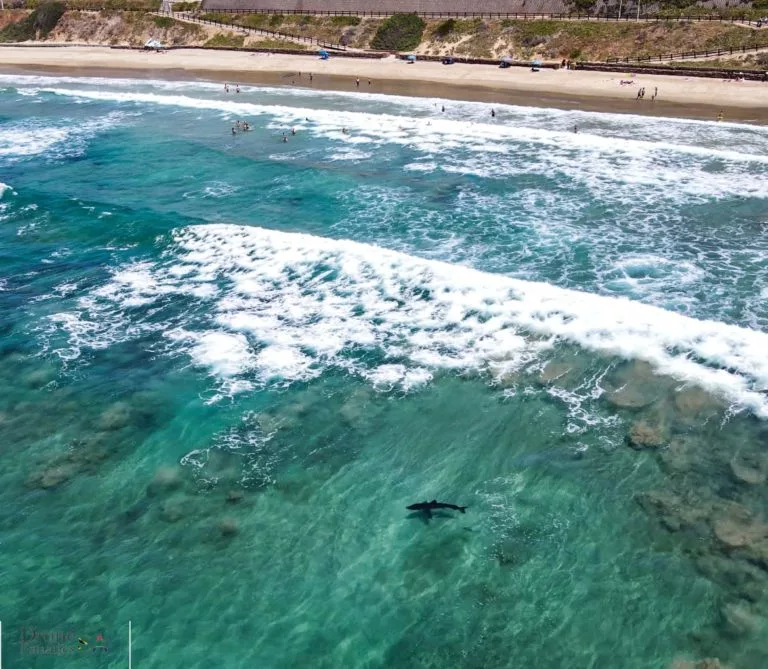
Picture: Getaway Gallery
Mossel Bay is the best example as the great whites can be as close as 800 meters from busy swimming beaches and we still have not had a shark attack in the area. People know this and some have even seen sharks while swimming or surfing which means humans and sharks can co-exist.
Do you have any memorable or inspiring encounters with sharks while working on conservation projects?
Working with great white sharks is memorable in itself, especially seeing the different personalities of each shark. One encounter I won’t forget was when one shark we call Freckles (Black pigmentation across its body) passed by and I could see his eye staring directly at me. I’ve only experienced this once as great whites generally cover their eyes when coming to the surface of the water (in an effort to protect themselves).
Sharkfest is currently showing on National Geographic Wild (DStv 182, Starsat 221) with premiere shark programming every Saturday and Sunday from 6 PM throughout the month of July.
Expanding beyond the channel, two short films, produced by filmmakers in the Africa Refocussed program, a collaboration between NEWF (Nature, Environment, Wildlife and Filmmaking project) and the National Geographic Society, will be available on National Geographic Africa’s Youtube channel throughout the month:
- AZILALI, THEY DO NOT SLEEP – This film by Faine Loubser depicts the journey through the life of a dark shy shark foetus. The film reveres the sacredness and mystery of the ocean, reminding us that the ocean is always awake and ready to connect with us. Watch this short film here.
- BREAKING THE SURFACE: DIVERSITY IN THE OCEAN & MARINE ECOSYSTEM – The value of accessibility and knowledge of marine life are explored in in this short film. Featuring shark scientist Sophu Qoma, this film follows her research of Great White Sharks and reveals how the development of skills such as diving enabled her to journey down to the ocean and study this fascinating species. Watch this short film here.
Follow us on social media for more travel news, inspiration, and guides. You can also tag us to be featured.
TikTok | Instagram | Facebook | Twitter
Also Read: WATCH: Great white swims between surfers in Jeffrey’s Bay


